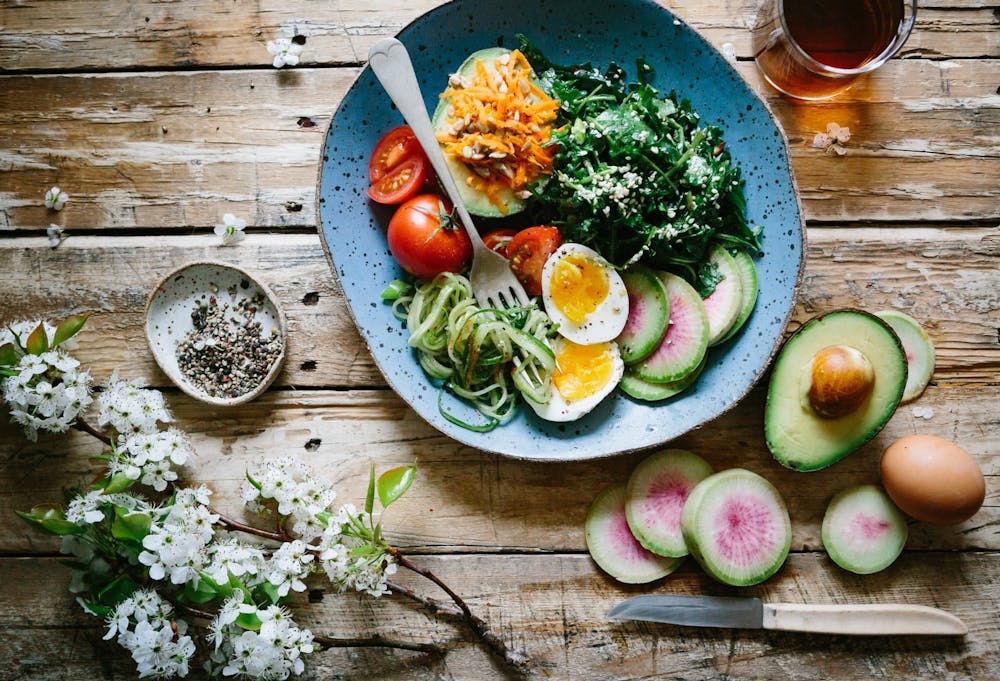What is your relationship with food? Some of us have thought about this too much, and some not at all. It is a commonly accepted fact that what we eat impacts the health of our bodies and cliché sayings such as “You are what you eat” reinforce this in our mind.
However, knowing what to eat to “be healthy” can be challenging. Having a healthy perspective on food is a critical component to caring for and developing a right relationship with yourself.
Nutritionism, or the ideology of nutrition, is complex, confusing and changeable, resulting in a developing career field for diet experts to help you figure it out. Even if knowing “what to eat” is possible, consistently choosing “healthy foods” is difficult.
Humans prefer salty, sweet, or fatty foods; we are neurologically drawn to these tastes. The food industry has capitalized on this, simultaneously increasing the quantity while reducing the cost of processed foods, meats and “convenience” foods. This has produced the Western diet, which relies on, among other things, the industrialization of farming practices, significant processing of ingredients and genetic modification, all of which negatively impact the nutritional value of the foods we consume.
Sadly, since the rise in the Western diet, chronic diseases such as cardiovascular disease, diabetes, cancer and obesity have risen to epic proportions. Even when adjusting for demographics such as increased age, the rates of these diseases in our modern times are significantly higher than in those of our ancestors.
So, what is the answer to this dilemma? How can we know what to eat? If the foods available to us are in some ways literally killing us, where can we turn?
In his book, “In Defense of Food,” author Michael Pollan recommends following this simple manifesto: “Eat Food. Mostly plants. Not too much.” I recommend it to you, as an ideology for developing a healthy relationship with food, and here’s why.
Eating food sounds simple enough, until we look at the ingredients list on the foods we consume. We cannot even pronounce half of the words, much less recognize them as foods.
Pollan’s manifesto is in fact referring to whole foods, not processed foods. Whole foods with minimal added ingredients — foods that would be recognized as food by your great-great-great grandparents 100 or even 200 years ago. Whole foods contain a higher amount of nutrients for each calorie compared with processed foods. We call this a higher nutrient density –– meaning that you, the eater, feel more full and consume less. This would look like grabbing a banana at breakfast as you leave the Dining Commons (DC) and leaving the toaster pastry on the shelf.
The second part of Pollan’s manifesto recommends a diet that consumes mostly plants. Plant-based diets result in reduced rates of chronic disease and mortality from chronic disease due to the limited cholesterol, trans and saturated fats and increased fiber and antioxidants within these foods.
Pollan stops short of specifically recommending that we adopt a vegetarian diet. But the proportions of a typical Western diet should be reversed: meat, if consumed, should be eaten in moderation, almost as a side or topping to flavor the plant foods. This does not mean that the only healthy option is salad, although fruits and vegetables are irreplaceable in a healthy eating pattern. Many other options are available to you as well, including whole grain bread and pasta and rice, with a small portion of meat to add some flavor.
Pollan’s final pronouncement is to not eat too much. The 2,500-year old Confucian mantra, “Hara hachi bu,” is an Okinawan phrase reminding them to stop eating when their stomachs are 80% full. The Okinawa Prefecture has been studied as one of the “blue zones” of healthiest people worldwide due to their long life expectancy.
One simple suggestion for living this out is to slow down your meals. The nerves in the stomach cannot communicate that the stomach capacity is full until 20 minutes after consuming food. If you rush through a meal, you may overconsume without giving your body the opportunity to tell you to stop. Slow down and listen to your internal self. Take some time to linger at wing dinner.
As you can see, the pursuit of healthy eating takes intentionality. It touches many parts of our lives, especially how we schedule our daily activities, work and classes. It takes effort to be mindful of our food choices, so that you can care for yourself instead of rushing to grab something on the go from the Stu.
The food we eat, how we eat it and how much we eat are critical to the health of our physical bodies, but how do they also impact our other relationships with God, others and creation? To fully delve into this concept would require another article entirely, or you could just take the Nutrition course (EXS 316) to find out!





